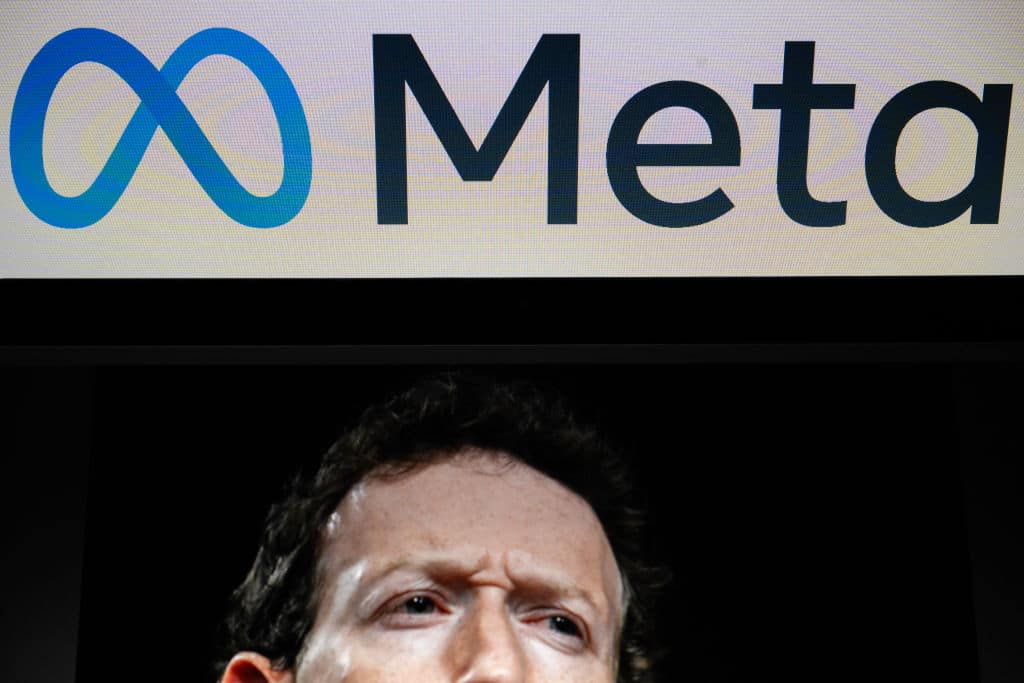
All products and services featured are independently chosen by editors. However, Billboard may receive a commission on orders placed through its retail links, and the retailer may receive certain auditable data for accounting purposes.
What’s song matches your current vibe? Facebook wants to make it easier to spark conversations about music and more with its new profile features unveiled during the Facebook IRL event during Austin City Limits earlier this month.
Explore
Explore
See latest videos, charts and news
See latest videos, charts and news
The social media giant transformed Fair Market in Austin, Texas, into a real-life Facebook account with different stations representing profile features including a hi-fidelity music lounge featuring albums from Taylor Swift, Lady Gaga, The Weeknd, Miley Cyrus and other recording stars. The event also included live performances.
“Whatever you’re into, there are people on Facebook that can help you find and do more of it,” Facebook head Tom Alison explained during Facebook IRL. “Our vision is to make it easy to discover that content and those people. Ultimately, that is what Facebook is for. We’ve been helping people explore their interests and discover new things for many years.”
Trending on Billboard
“Facebook is building the best technology to help you discover the content and connections that are right for you,” he continued. “We’ve made major investments in building state of the art AI systems that can service the most interesting content to people all across the world.”
Facebook Messenger Hi-Fi Lounge
Aarron Anderson
New features include a Local tab, which collects content from Reels, Marketplace, Groups and Events on Facebook and Facebook Explore, which lets you dive even deeper dive into your interests.
“It’s personalized around your broad set of interests and allows you to learn and do more with them,” Alison said of Facebook Local. “What is unique about Explore is that it gives recommendation algorithms that are less focused on entertaining content and a bit more focused on finding authentic and practical content that’s going to be useful to you.”
Facebook Local is currently testing in Austin, New York City, Los Angeles, Washington D.C., Chicago, Dallas, Houston, Charlotte, Phoenix and San Francisco.
Messenger Communities, another new feature, offers a fresh way for communities to “connect over shared interests and topic-based chats,” according to the company.
Other new features include an upgraded, full-screen Video tab that gives Reels a more prominent position, posts with AI Comment Summaries that you can read instead of scrolling through comments and Matchmaker, a new Facebook Dating feature that you can enact to allow your friends to “swipe for potential matches on your behalf.”
With Facebook’s Weekly and Weekend Digest for Events feature, you can find the best concerts, music festivals and other events in your area and share them with your Facebook friends or groups “to find someone to go with,” noted Alison.
The company also added music and mentions to Notes in Messenger and a new feature that lets you invite your Instagram followers to events that you created on Facebook — regardless of whether they have a Facebook account.
Facebook’s new profile features were announced ahead of the Meta Quest S3 ($299) release on Oct. 15. The Meta Quest S3 is available at major retailers such as Amazon, Walmart, Target and the Meta store.
HipHopWired Featured Video
Source: Robin L Marshall / Getty
A former diversity manager for both Facebook and Nike just learned that crime doesn’t pay and that freedom is indeed priceless. Barbara Furlow-Smiles was just sentenced to five years in prison for robbing both companies of millions of dollars.
According to CNBC, Furlow-Smiles pleaded guilty to wire fraud back in December of 2023 after being accused of stealing $4.9 million from Facebook by using fake invoices, fraudulent vendors and even cash kickbacks while working for the company. Interestingly enough she continued to partake in such practices when she got herself a new gig over at Nike as their DEI but only made off with a little more than $100,000. Chicken feed when compared to the millions she syphoned off of Facebook but still a lot of money.
Prosecutors in the case asked the judge to sentence her to 6 and a half years as she used the money to fund a pretty lavish lifestyle in California, Georgia and Oregon, but “luckily” for Smiles, the judge overseeing the case decided to cut the sentence down to five years for her transgressions and ordered her to repay Facebook $4.8 million and Nike $121,000.
CNBC reports:
Prosecutors in their sentencing memo said that in addition to the money Furlow-Smiles stole from the company, Meta lost more than $4.5 million “in addition to other expenses, such as attorney’s fees, which were incurred as a result of Meta having to uncover and investigate her fraud scheme.”
“As Meta notes, ‘the harm from [Furlow-Smiles’] criminal conduct cannot be measured purely in financial terms,‘” prosecutors recounted in their memo. “Her ‘crimes also resulted in anguish amongst those employees that worked closely with her.’”
Nike told prosecutors that she was “entrusted as a leader for [the] company, that she would embody the value of ‘Doing the Right Thing’ which is one of NIKE’s key maxims,” the prosecutor said in their memo. “As Nike explains, ‘[t]o say that Ms. Furlow-Smiles violated our trust would be an understatement. The fraud committed by Ms. Furlow-Smiles violated the trust of and devastated the employees who managed and worked with her.’ ”
We’re just surprised that she continued her scheme at Nike after getting fired from Facebook. Did they not call her past employers for references or anything?
What do y’all think of this multi-million dollar scheme? Let us know in the comments section below.
HipHopWired Featured Video
Source: Hoover Police Department / Hoover PD
As Carlee Russell recovers after going missing last week and being found in Alabama, her boyfriend expressed how she spent two days fighting for her life.
The country was riveted as word spread of the disappearance of Alabama nursing student Carlee Russell after she made an emergency call to help a toddler on the side of a highway. Many social media users, eager to help find the missing young Black woman, helped to spur the search for her afterward until late Saturday night when Russell arrived back at her home. Her boyfriend, Thomar Latrell Simmons, wrote a Facebook post shortly after expressing his relief and also shedding some light on the ordeal.
“She was literally fighting for her life for 48 hours, so until she’s physically & mentally stable again she is not able to give any updates or whereabouts on her kidnapper at this very moment,” he wrote.
The post created Sunday (July 16) contains pictures of Simmons and Russell together. He continued: “I have been going nonstop since I received the call that she was missing on Thursday night. I know she would’ve done the same for me, so I wasn’t going to give up until I saw her face again!”
Simmons expressed his thanks to all of those concerned including family and friends who helped with the search and even addressed those skeptical of Russell’s disappearance or speculating he had a hand in it. “I was straight tunnel vision, even when I would get on social media on my downtime & see some of the false allegations & assumptions about me having something to do with her abduction would have me discouraged at times I didn’t give up & kept my faith!” he wrote.
Carlee Russell was taken to UAB Hospital from her home in Hoover after she arrived for a medical examination. Authorities say that the investigation will be a “tedious process,” and Russell’s parents have declined to talk about where she was for those 48 hours. Talitha Russell, Carlee’s mother, did express annoyance over those skeptical of her daughter’s disappearance and return in an interview with the Today show. “I just didn’t know people could be so evil,” she said. “She’s having to deal with the trauma of people making completely false allegations about her.”
HipHopWired Radio
Our staff has picked their favorite stations, take a listen…

 State Champ Radio
State Champ Radio 








